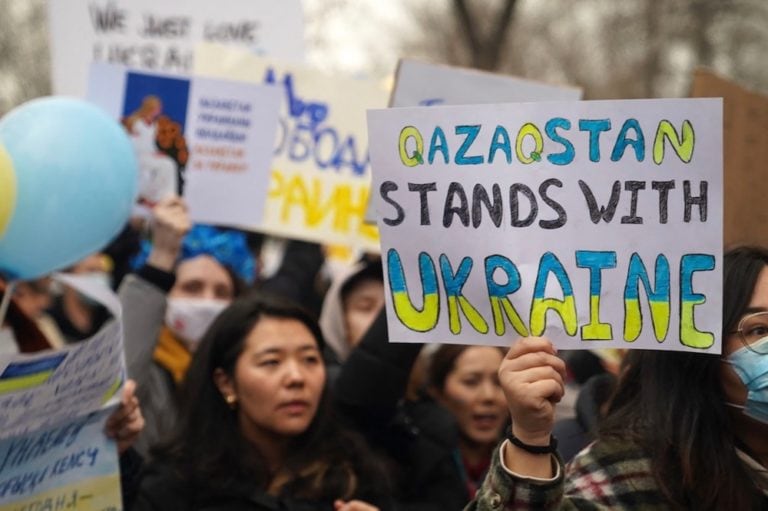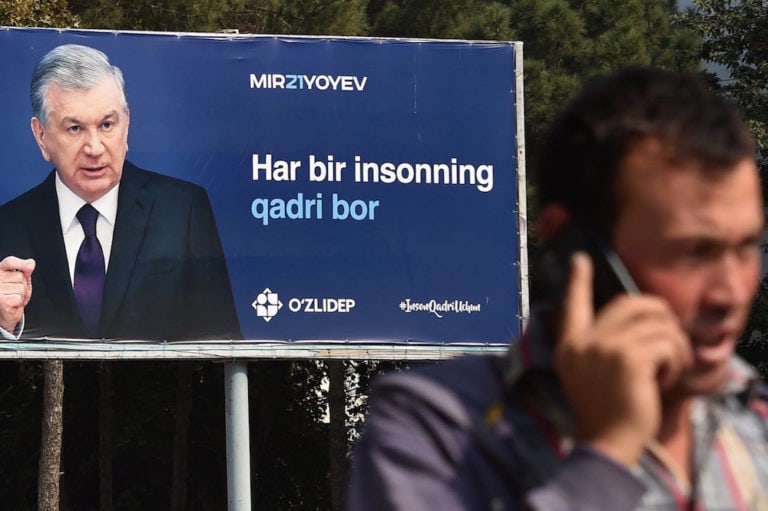(RSF/IFEX) – On 29 August 2003, RSF called on the European Union (EU) and Western countries’ embassies to push for the release of jailed Uzbek journalist and human rights activist Ruslan Sharipov, who says he pleaded guilty to sex charges at his recent trial after being physically and psychologically ill treated. RSF also called on […]
(RSF/IFEX) – On 29 August 2003, RSF called on the European Union (EU) and Western countries’ embassies to push for the release of jailed Uzbek journalist and human rights activist Ruslan Sharipov, who says he pleaded guilty to sex charges at his recent trial after being physically and psychologically ill treated.
RSF also called on the German, French, United States, Swiss and EU embassies in the Uzbek capital, Tashkent, to ensure international standards of justice are observed in the case and to guarantee the safety of Sharipov’s family and his lawyer, human rights activist Surat Ikramov, who was beaten up by thugs in Tashkent on 28 August.
Sharipov, former head of the Union of Independent Journalists of Uzbekistan (UIJU) and correspondent for the Russian news agency Prima, has been frequently pressured by the authorities in recent years to drop his human rights work and criticism of the government.
RSF believes that Sharipov’s disclosure of his forced confession indicates that his jailing on 13 August for five and a half years for alleged homosexuality and relations with minors was the result of a trumped-up prosecution, aimed at silencing one of the country’s most strident dissidents. The attack on his lawyer, who had just been discussing his case with the judge in charge, and the fact that it took place the day before a planned demonstration in support of Sharipov, point to a serious attempt to prevent Sharipov from being defended, RSF believes.
Sharipov revealed that the confession was forced to a visitor who saw him on 27 August. He also asked his lawyer to lodge an appeal on his behalf. He said he had “confessed” on 8 August, asked President Islam Karimov to forgive him for everything he had written, refused to allow his mother (the only defence figure allowed) to attend his trial and dismissed Ikramov as his lawyer. The Mirzo Ulug-Beg District Court in Tashkent then sentenced him under Articles 120, 127-3 and 128-2 of the criminal code.
Sharipov, who has never denied his bisexuality, told Vasilya Inoyatova, president of the Uzbekistan human rights group E’zguilik, who saw him on 27 May, that he did not know the alleged victims, who were arrested on 26 May and held for several days. Sharipov’s lawyer said the youths were beaten and threatened by police in efforts to get them to give evidence in court. The case was postponed several times because of their absence from court.
Ikramov was attacked on 28 August by four masked men in military uniforms who dragged him out of his car, put a bag over his head, tied him up, took him to a city park and beat him with sticks for an hour. He was taken to a clinic with two broken ribs and bad bruises. He had been to see the judge in the case, Ganisher Makhmudov, to ask permission to visit Sharipov, just prior to the attack. The judge advised him to drop the case, “for his own sake.”
Ikramov told journalists he had anticipated the attack and had recently received telephone death threats. A demonstration on 29 August in support of Sharipov, which was to be attended by Ikramov and was organised to coincide with the new session of Parliament, was cancelled. On 22 August, Ikramov had attended a press conference and a demonstration in front of the Interior Ministry.


